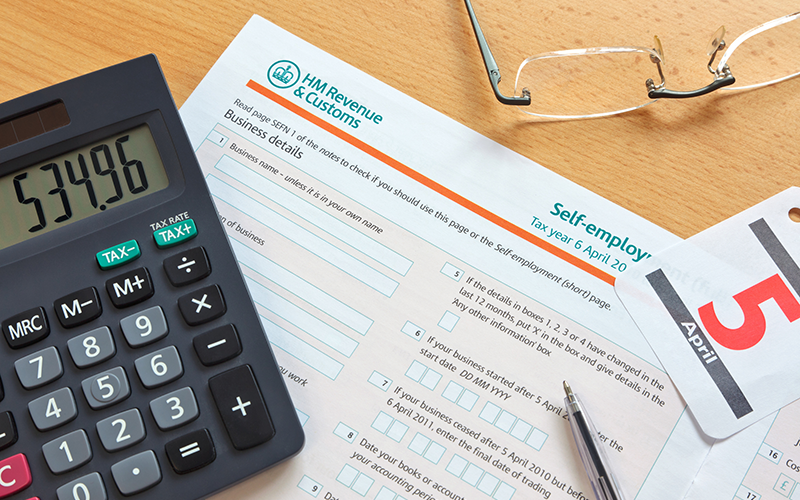Arguments rage in war of words surrounding HS2 contractors and IR35

HM Revenue & Customs has once again defended its Check Employment Status for Tax (CEST) tool following concerns raised over its accuracy.
Yesterday, contracting authority ContractorCalculator released a statement in which it revealing that 98% of IR35 status assessments carried out by High Speed 2 (HS2) in 2018 deemed the contractor to be caught by off-payroll rules.
Responding to a Freedom of Information (FOI) request from ContractorCalculator, HS2 confirmed 979 of the 1,001 assessments conducted in 2018 returned an ‘inside IR35’ verdict, with 22 contractors deemed outside.
According to ContractorCalculator, these findings have fuelled suspicions of further non-compliance with IR35 legislation in the public sector.
Last week, HMRC said it had seen no evidence of blanket IR35 determinations in the public sector after another ContractorCalculator FOI request found 99% of contractors working for Network Rail were deemed by the public body to be caught by off-payroll rules in 2018.
ContractorCalculator claimed at the time that the figure was a result of an “unlawful role-based blanket approach” agreed upon with HMRC, with assessments being conducted using its CEST tool.
Commenting on the results of this latest FOI request, Dave Chaplin, CEO and founder of ContractorCalculator, said: “Just last week, ContractorCalculator broke the news that FOI responses from Network Rail exposed what the public body had referred to as ‘a strawman process of determining status’.
“This process involves assessing the status of generic roles using HMRC’s CEST tool, before applying that determination to contractors undertaking the job. Despite being non-compliant with the off-payroll rules, Network Rail correspondence revealed that this practice was developed in conjunction with, and approved by, HMRC.
“Compliance practices aside, the 98% of contractors considered caught by IR35 in 2018 alone is enough to warrant suspicion. The number is wildly inconsistent with HMRC’s estimation that roughly a third of contractors should find themselves caught by the rules, yet strikingly similar to the rough proportion of ‘inside IR35’ outcomes found by other public bodies using CEST…
“This appalling treatment of the self-employed has backfired for government. Rates to obtain talent have soared, while the ability to source talent has diminished, causing considerable costs to projects such as HS2.
“The off-payroll rules have been an act of self-harm on the public sector, yet government seems intent on inflicting the same wounds on the private sector.
“Government needs to delay its proposed extension for at least one more year while independent data gathering is conducted and recognise the hard truths about off-payroll that HMRC has so far refused to acknowledge.”
In response, an HMRC spokesperson said in a statement: “HMRC does not comment on identifiable customers. Employment status for tax is determined by the contractual terms and conditions, and the actual working practices of an engagement. The reform of the off-payroll working rules does not affect the genuinely self-employed, only those incorrectly paying tax as though they’re self-employed, when they are in fact acting as employees.
“CEST was rigorously tested against known case law and settled cases. It is accurate and HMRC stands by the result if the tool is used correctly. CEST is not biased towards an employment outcome, giving a self-employed outcome the majority of the time.
“HMRC estimates only around a third of individuals working through their own company fall within the rules and should be taxed as employees. However, numbers will vary between roles and sectors.”
HS2 was also approached for comment. A spokesperson for HS2 said: “The nature of a project like HS2 means contractors play a valued and important role in developing many varied and specialist aspects of Britain’s new high speed rail network. As we move forward, we will continue to employ people from across the whole workforce, including those in self-employment, to deliver this crucial infrastructure investment.
“We carefully consider how IR35 affects self-employed people working on the project alongside our obligations to abide by the legislation. Our decisions made on whether a self-employed contractor could continue to be classified as self-employed follow a rigorous process of guided assessments by contractors’ line managers and appropriately trained staff. This considers their actual present and future working practices and relationship with HS2.
“We are confident that we have robust and fair processes in place to support our workforce but are always looking to learn and improve.”
The off-payroll rules make end clients responsible for determining whether a worker who operates through a personal service company (PSC) or other intermediary is caught by IR35 or is genuinely self-employed. Where the worker is caught by IR35, the rules also make the fee-payer, which will often be a recruitment agency, responsible for deducting and then paying the worker’s tax, National Insurance and employer’s NI. The rules, which have already been implanted in the public sector, are being extended into the private sector from April of next year.
• Comment below on this story. You can also tweet us to tell us your thoughts or share this story with a friend. Our editorial email is [email protected]




